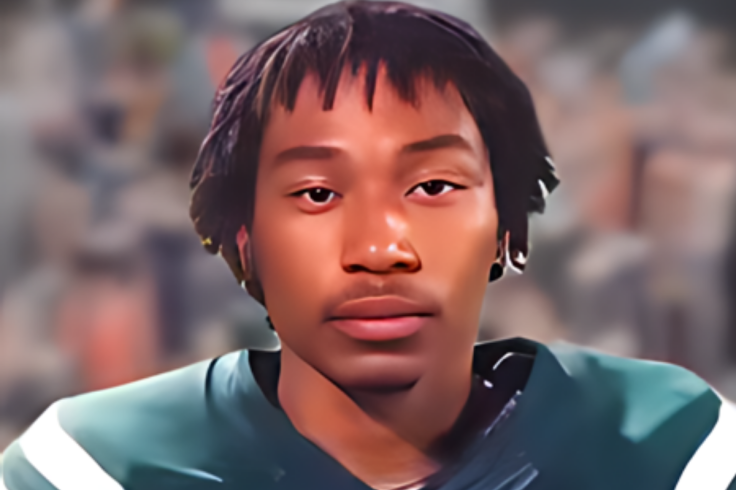What Does NYC Shooter Shane Tamura and Ex-NFL Player Aaron Hernandez Have in Common?
From gridiron glory to shocking violence—exploring the eerie similarities between a former NFL star and a suspected NYC gunman, and what they reveal about the hidden crises behind the headlines

A Las Vegas gunman who murdered four people in a Manhattan office building this week and a former NFL star who died in prison share more than headlines—they expose the deadly consequences of America's sports culture.
Though Shane Tamura, the man behind the fatal NYC shooting, and Aaron Hernandez, the former NFL star-turned-convicted killer, led different lives, their stories converge on one alarming truth: beneath the surface of sports culture lies an unchecked crisis of identity, trauma, and violence.
Their parallel descents from athletic promise to fatal violence highlight an endemic crisis: a culture that celebrates physical dominance and suppresses emotional vulnerability. Tamura's documented mental illness and cross-country drive to destruction mirrors Hernandez's spiral from NFL stardom to life imprisonment.
High School Glory: The Making of Athletes
Both Tamura and Hernandez were products of America's football dream.
- Tamura, aged 38, played football during his school years in California. While not a professional athlete, early reports suggest he had a history with the sport and an affinity for its culture.
- Hernandez, by contrast, became a superstar. A tight end for the New England Patriots, he climbed from a turbulent childhood in Connecticut to become a household name—before his 2013 arrest for murder and eventual prison suicide in 2017.
What unites them is not athletic success but what football represented: an identity, a coping mechanism, and possibly a mask for internal conflict.
Trauma, Pressure, and Emotional Collapse
Football is often more than a game. For many young men, it is a social rite of passage—a place where aggression is channelled into glory, and emotional vulnerability is erased.
Aaron Hernandez grew up with alleged physical and sexual abuse, and the sudden death of his father at age 16 left a deep emotional scar.
Post-mortem examinations confirmed he suffered from Stage 3 chronic traumatic encephalopathy (CTE)—a degenerative brain condition linked to repeated head trauma.
'We've never seen...in our 468 brains, except for individuals very much older,' said Dr. Ann McKee of Boston University.

Shane Tamura's mental health records remain sealed, but police and media reports confirm he had a documented history of psychiatric issues and had travelled cross-country before the shooting.
His decision to target an office building associated with the NFL may not be coincidental.
Symbolism of the NFL in Both Cases
Tamura entered the 10th floor of a Manhattan building housing the NFL's offices, fatally shooting one man before turning the gun on himself. The motive remains unclear, but the location raises chilling questions.

Was the NFL just a backdrop—or a deliberate symbol?
While Hernandez was a product of the league, Tamura may have viewed it from the outside: an institution that glorified the very archetype he couldn't become. In both cases, the NFL sits not as a villain, but as an unexplored influence—representing masculine idealism, fame, and pressure.
Death by Suicide: The Final Escape?
Both men died by suicide—one in a prison cell, the other at the scene of his crime. In both cases, it cut off public access to their inner motivations, leaving families and investigators without closure.
The fact that both chose self-inflicted death underscores a recurring theme: men—especially those shaped by hyper-masculine sports environments—often have no outlet for vulnerability.
For experts like developmental psychologist Dr. Niobe Way, many societal issues stem from the loneliness boys experience while growing up in what she terms a 'boy culture', a framework that often suppresses their emotional and relational needs.
Lessons We Cannot Ignore
This isn't just about one tragic shooting or one fallen athlete. The cases of Tamura and Hernandez remind us of larger truths:
- Football can nurture discipline and a sense of belonging, but also glorify aggression and emotional suppression.
- Mental health resources remain deeply inadequate, especially for men with trauma histories.
- Masculinity in crisis is a cultural issue, not just an individual one.
Tamura and Hernandez represent a broader cultural warning: when identity is built on toughness and silence, breakdown becomes inevitable.
What connects a Vegas drifter to an NFL superstar? Look closer. Both learned early that violence pays. Hit hard, get praised. Show weakness, get benched.
American sports don't just build athletes—they manufacture warriors. Friday night lights blind us to what happens in the darkness afterwards. Coaches preach toughness. Fans demand blood. Boys become men who know only one language: force.
Nobody taught them what comes after the final whistle.
© Copyright IBTimes 2025. All rights reserved.





















